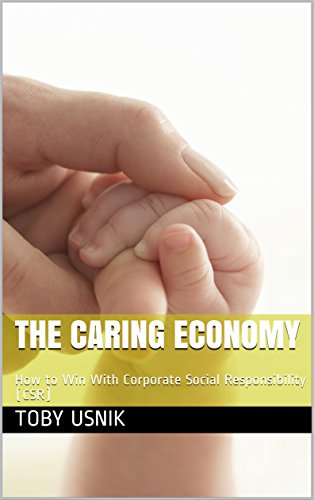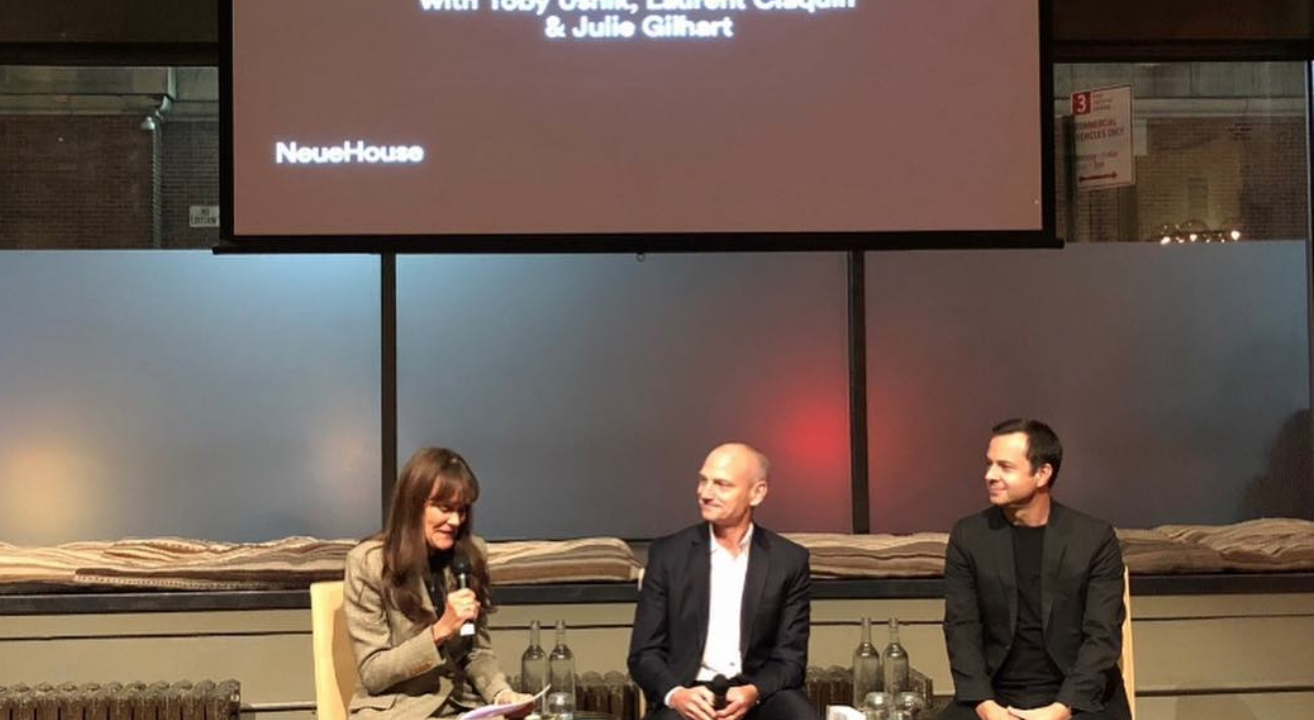Culture November 20, 2018


A used and often abused buzzword is “CSR” or corporate social responsibility. Upon first reaction, you may think this is an example of an oxymoron. As in, when left to their own devices, can corporate America actually be responsible and at least some of the time, put the greater good above quarterly profits?
These questions and more are addressed in a very well done primer on the subject, which actually takes the history of CSR from the late 80s on and brings us current with what might be considered the next wave – “The Caring Economy.” This easy-to-read paperback, newly published by Amazon Kindle Direct Publishing, is written by Toby Usnik, former (and first) Head of CSR for auction house Christie’s; before that a senior communications officer for The New York Times, American Express and other major corporations. (For purposes of full disclosure, I should mention that Toby is a personal and business friend.)


Fashion and sustainability consultant Julie Gilhart, author Toby Usnik and Kering Americas president Laurent Claquin discuss The Caring Economy at Neuehouse New York City
This book should be mandatory reading for any seasoned PR/corporate communications as well as sustainability/public affairs/community relations executive. Usnik skillfully blends the public relations and external audience benefits of positive CSR programs with the risks and downside: the dreaded “greenwashing” or equivalent for non-profits, in which a company is more focused on the PR benefits of doing good than the legitimate doing good that corporate philanthropy can bring to society. On a more sophisticated level, Usnik explores how to craft a meaningful CSR program that builds the brand, and provides an appropriate fit with the company’s core business.
A memorable example he cites is Ford Motor Company’s long-term support of initiatives to fight breast cancer, which totaled more than $136 million since 1993. Now, this would seem to be a sincere and very concrete effort by a major corporation to help fight a terrible disease affecting millions of women worldwide. One could also argue that Ford was ahead of its time for focusing upon a primarily female issue in society. So why then was this off-strategy and not a good “investment” for the Ford brand? Usnik answers clearly: what does breast cancer have to do with personal transportation, which is, in fact, Ford’s core business? Not much, obviously. In recent years, Ford has been a troubled company, this is reflected in its sinking stock price and management turnover. Usnik points out that CSR initiatives in the areas of energy efficiency, fuel economy, materials recycling and the like would have made much more sense for Ford to delve into. Ford could probably have made some very significant progress on these subjects with that same $136 million – and done a lot more to build and enhance the Ford brand as a leader in personal transportation and mobility in the process.
Corporate philanthropy is often driven by the personal hot buttons or “pet” issues of the CEO. This book demonstrates why this is not a great idea. Selection of issues to focus on is absolutely key and should be made by a committee or group of top executives who understand the marketing and communications and branding ramifications of these decisions.
Usnik’s book can really be boiled down to one logical, definitive and highly insightful paragraph, taken from p. 69: “Customers are not that different than employees. They like companies that make them feel good about associating with them. Customers want to spend money in a socially responsible way, and when your company’s communications are effective in delivering a CSR message about what you sell, the resulting emotional connection with customers tends to engender brand loyalty.” This, corporate communications professionals, is the essence of not only effective CSR programs but doing business with the upcoming generation of Millennial and GenZ consumers. As a group, they tend to be more socially conscious, less acquisitive than their elders, and make an effort to vote with their dollars. Companies that understand this will be much better positioned to succeed in 2020 and beyond.
Usnik is also a part of the ENTITY mentor network and will be guiding mentees in our sustainability and writer’s collective.